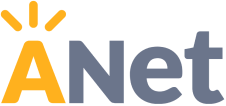What is dyslexia?
Dyslexia is a language-based learning disability. People with dyslexia experience difficulties with word recognition, language decoding, and spelling. They often struggle with reading comprehension.
Dyslexia—or “dysteachia”?
When schools identify, support, and effectively teach kids with dyslexia, these students can master reading comprehension at grade level. But most schools don’t provide the early foundational skills training students with dyslexia need to succeed—skills including phonemic awareness and phonics training. This means these students often fall behind their peers.
Dysteachia describes the mismatch between the instruction many students with dyslexia receive and the instruction they need in order to develop grade-level reading comprehension. Kids with dyslexia can’t change the way their brains decode language—but teachers can adopt approaches that work for all students, including those with dyslexia.
How can teachers and school leaders support students with dyslexia?
Educators can address dysteachia in their classrooms by teaching the Reading: Foundational Skills Standards, including print concepts, phonological awareness, phonics, and word recognition through structured literacy instruction. What’s best for students with dyslexia is actually what the standards recommend for all students. It is just that much more crucially important for the success of students with dyslexia.
And the earlier, the better! Kids with dyslexia who get effective phonics training in kindergarten and first grade have substantially higher chances of reading at grade level than kids who don’t have access to it until third grade.
This approach is effective for students without dyslexia, too: in fact, the standards call for it. By using a reading instruction model that supports all students, educators can ensure that students with language processing disorders have the opportunity to succeed.
To learn more, listen to Jade, an eighth-grade student, explain her experience with reading issues in this video.

